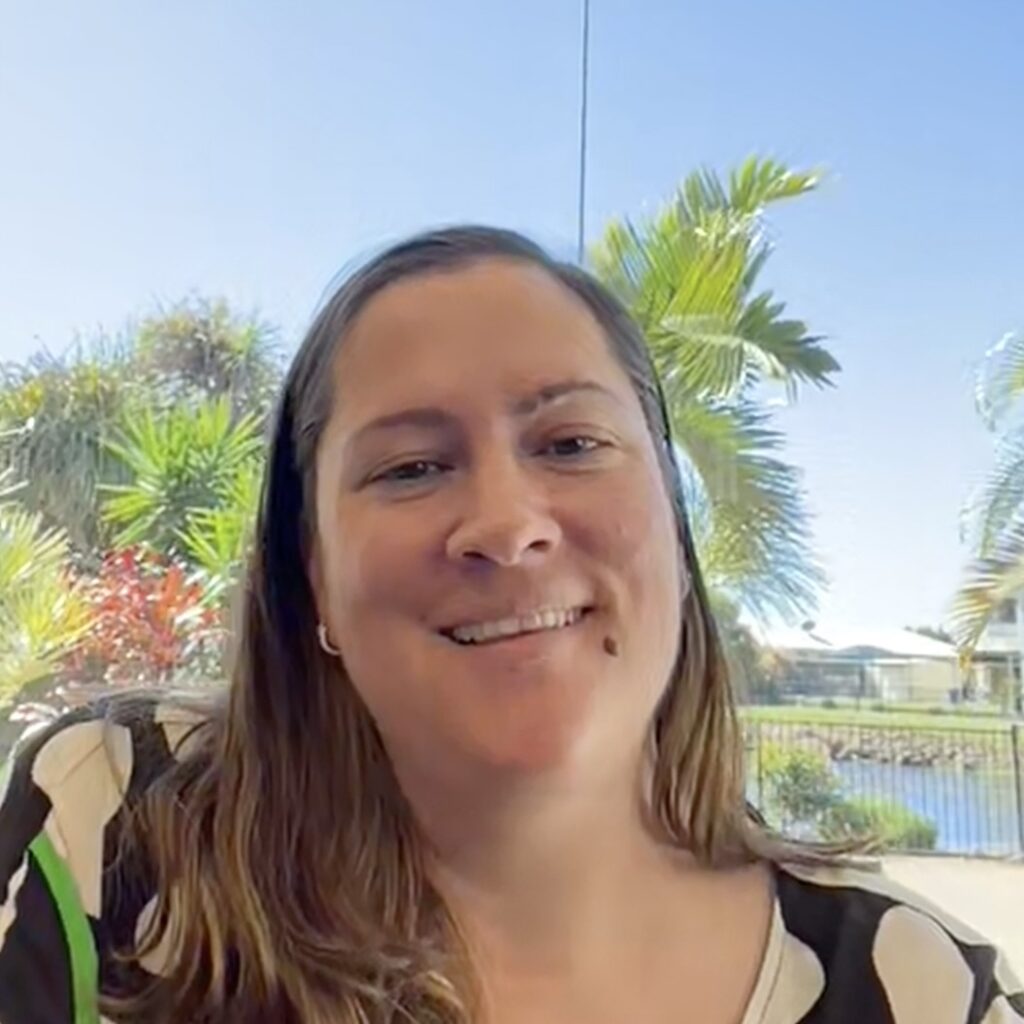Q&A with Shannon Baso

Shannon is a recently qualified FACEM, now living and working in Bundaberg, QLD, where she enjoys the ocean, cane fields, and pragmatic rural communities. She has a passion for toxicology and toxinology.
At SSEM22, Shannon will be facilitating the Tox Trials and Tribulations (T3) workshop.
Questions and Answers
You’ve gone peripheral. What are the benefits?
Lots. I like that here you can just work in one hospital, rather than splitting your FTE between different ones. That looks exhausting. And I prefer the medicine outside of urban areas. Here they get sicker. More farmers and injuries. Further north, there’s really amazing tropical medicine.
What about your career? Doesn’t going peripheral set that back?
We’ve all been working for a long time by the time you get to being a FACEM. There is a trap you can fall into where you have to keep flogging yourself. Doing everything, working overtime, trying to achieve things. Cutting your teeth somewhere that’s maybe a little bit simpler, lets you fine tune your skills better. Lets you find out who you want to be as a leader.
Why not just fly in fly out?
Oh no. We decided, as a family, that the time spent travelling is time we should be together.
What’s special about Bundy?
It’s lovely. I live in Bargara, a little suburb by the beach. It’s beautiful. Blue skies, there are palm trees, the ocean is a few hundred metres from my door. Plus the rural people are awesome to work with, patients and staff. What they expect, the care that they want, their priorities are very different, compared with people from the city.
Do you get turtles on the beach?
Yeah. We’ve seen several. When we moved here in January we went to Mon Repos, just north of us, and stayed until midnight and saw a turtle laying her eggs. And then we went out to Lady Musgrave Island, and saw three different sets of turtles hatching on the beach. The reef is beautiful.
Snorkel or SCUBA?
I love snorkelling. You can just take a deep breath and go deep. I equalise on the way down, only 3 or 4 meters. I haven’t done SCUBA. Being an emergency doctor and knowing the disasters of SCUBA doesn’t help.
You’re an ACEM Gold Medallist aren’t you? How do you get one?
I didn’t expect it. I blame COVID. Because my exams were cancelled so I studied for twice as long as I was supposed to.
You’re also a mum. How much harder was that?
I remember sitting down, deciding that today is the day I start studying. I told my husband that the next 2 years are going to be rough. You’re going to be parenting mostly by yourself. I’ll be studying on my days off, whenever I can. He’s amazing. He totally supported me. But you never get that time back. The time that you sacrifice studying, away from your children, for years.
Is the 3 strikes and you’re out exam policy fair?
I have a love/hate relationship with ACEM. They are too black and white. They forget that the thousands of trainees that they deal with are not robots. We all have individual circumstances. The training experiences are some of the most stressful experiences you can go through. The sacrifices you make are huge. I have met people who have been working for ten years, who are perfectly good emergency doctors, who have been just struck out. It’s inhumane.
Why do you love tox?
I didn’t even know it was a thing until I started training and moved to Cairns. We had 3 toxicologists working in the ED. We had a lot of cases, not just overdoses, but environmental exposures, like Irukandji, box jellyfish, snakebites. I just find that extremely interesting. Clinical toxicology, it’s like trying to figure out what’s wrong, like a detective, finding the solution.
Why is tox so hard to remember?
Hmm. There are a lot of doses. But you don’t have to remember everything. You just need to keep an open mind and know where to find the answers.
Aha, the Tox Handbook! If you’ve got one, why call Poisons?
Having an objective party think it through from a purely tox point of view is really helpful. They might push you towards something your brain has been avoiding. Like whole bowel irrigation, or a second dose or charcoal, or dialysis. Or thinking of a different exposure. It helps offload your brain.
Favourite antidote?
Digibind. You give it and they immediately get better. Their heart rate increases, hypotension is improved, they look so much better. Though the old name was better. Digifab.
And for SSEM delegates: the best antidote to a hangover?
B-B-Berocca makes you B-B-Bounce.
Shannon Baso will be facilitating at the Spring Seminar on Emergency Medicine, Noosa 18-21 October 2022.
Spring Seminar on Emergency Medicine
Noosa, 18-21 October 2022
Jo is an emergency medicine specialist based on the Sunshine Coast. He has qualifications in high fidelity simulation, aeromedical retrieval and point of care ultrasound, and a special interest in educational videography | @FlippEM |
